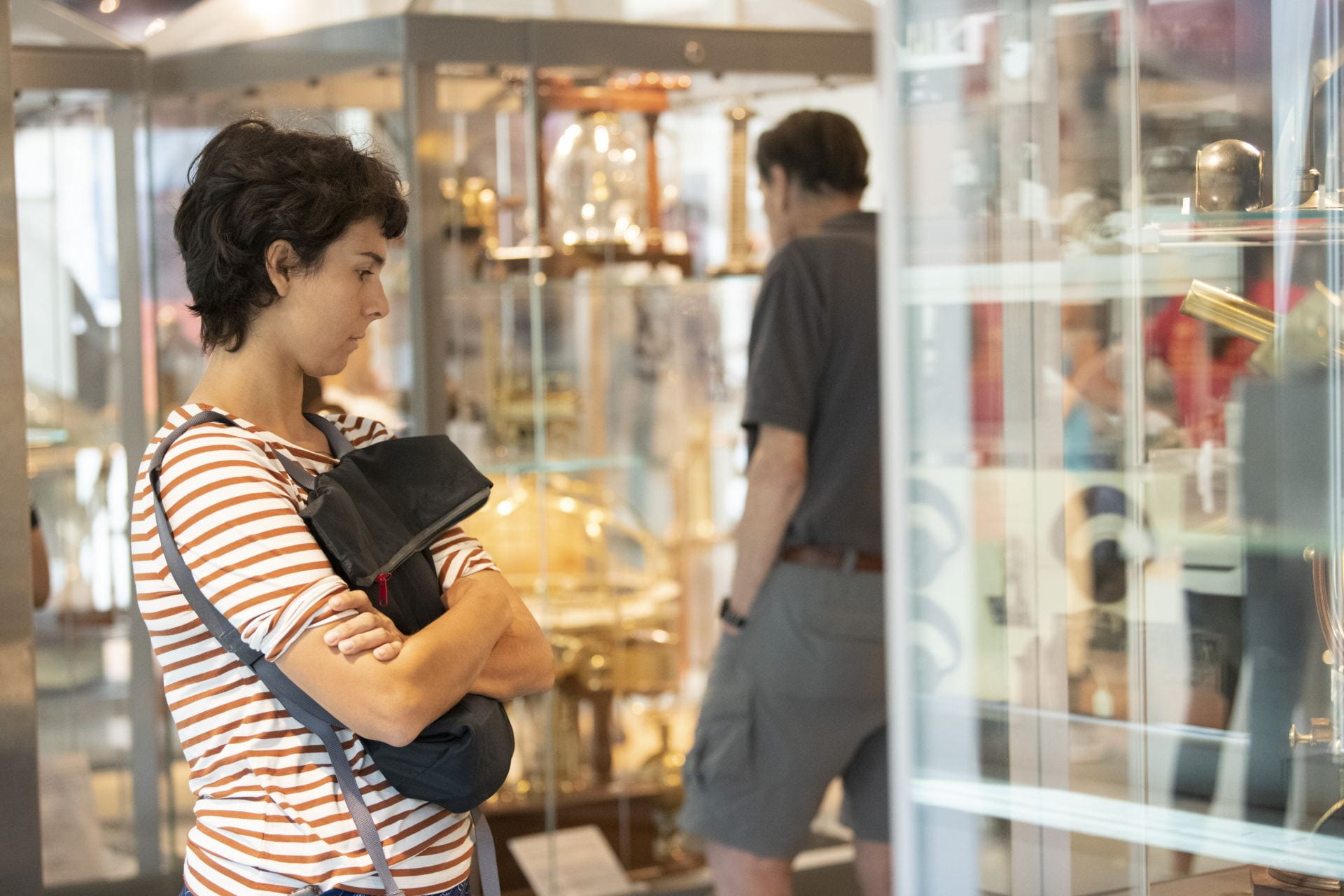(Cambridge, MA) A new exhibition Finding Our Way: An Exploration of Human Navigation opens February 12 at Harvard University’s Collection of Historical Scientific Instruments in Cambridge. This intriguing exhibition explores both the biological underpinnings of human navigation and its technological history, from the sea-faring cultures of the southern Pacific to early European mariners. Compelling mounted specimens from Harvard’s Museum of Comparative Zoology help tell the story of the human navigational instinct, deeply rooted in animal biology. Viewing accurate scale models of sailing canoes and nautical stick charts from the Peabody Museum of Archaeology & Ethnology, visitors will marvel at how expert navigators, using a relatively simple toolkit, successfully negotiated the complex archipelagos of the southern Pacific. Drawing from the extraordinary Collection of Historical Scientific Instruments, the exhibition traces the evolution of European celestial navigation, from the quadrant and astrolabe to the cross staff, octant, and sextant and showcases an array of variations in navigational instrument design. The exhibition displays diverse navigational methods used by fourteenth- to nineteenth-century mariners—including compasses and various dead-reckoning tools, as well as nautical atlases, maps, piloting books, and astrological texts borrowed from the Harvard Map Collection and the Houghton Library Archives.
The exhibition was developed by the Harvard Museums of Science & Culture in collaboration with the John Huth, codirector of the science program, Academic Ventures, at the Radcliffe Institute and Donner Professor of Science in the Faculty of Arts and Sciences.
The exhibition’s curator, John Huth will present a special exhibition opening lecture The Art of Wayfinding on Thursday, February 12th at 6:00 pm in the Harvard Science Center, One Oxford Street, Cambridge, in Auditorium E. In his lecture, Huth, author of The Lost Art of Finding Our Way, (Harvard University Press/Belknap Press 2013) will discuss early systems of wayfinding used by cultures around the world—from Norse and Arab explorers to Inuit and Polynesian voyagers—highlighting the skills they used to successfully travel by land and sea. He will demonstrate how our ability to navigate is both intrinsic and adaptive and provide suggestions on how to avoid ever getting lost.
The opening lecture is free and open to the public, and the exhibition will be open for viewing immediately following the lecture until 9:00 pm. In addition, Huth will sign copies of his book which will be available for sale. Free evening event parking will be available at Harvard’s 52 Oxford Street garage for lecture attendees.
Finding our Way will be on display in the 2nd floor gallery of the Collection of Historical Scientific Instruments (CHSI) at One Oxford Street, Cambridge through December 11, 2015.
Finding our Way is supported by generous gifts from the Radcliffe Institute for Advanced Study and the David P. Wheatland Charitable Trust.
The Harvard Museums of Science & Culture (HMSC) is a consortium of Harvard’s Faculty of Arts and Sciences museums. HMSC’s public museums are the Harvard Museum of Natural History, the Peabody Museum of Archaeology & Ethnology, the Harvard Semitic Museum, and the Collection of Historical Scientific Instruments. HMSC’s mission is to foster curiosity and a spirit of discovery in visitors of all ages, enhancing public understanding of and appreciation for the natural world, science and human cultures. For more information, visit www.hmsc.harvard.edu.
High resolution images available on request:
Media contact: Mary Blue Magruder
Director of Public Affairs & Marketing
HMSC Harvard Museums of Science & Culture
617-496-0049
